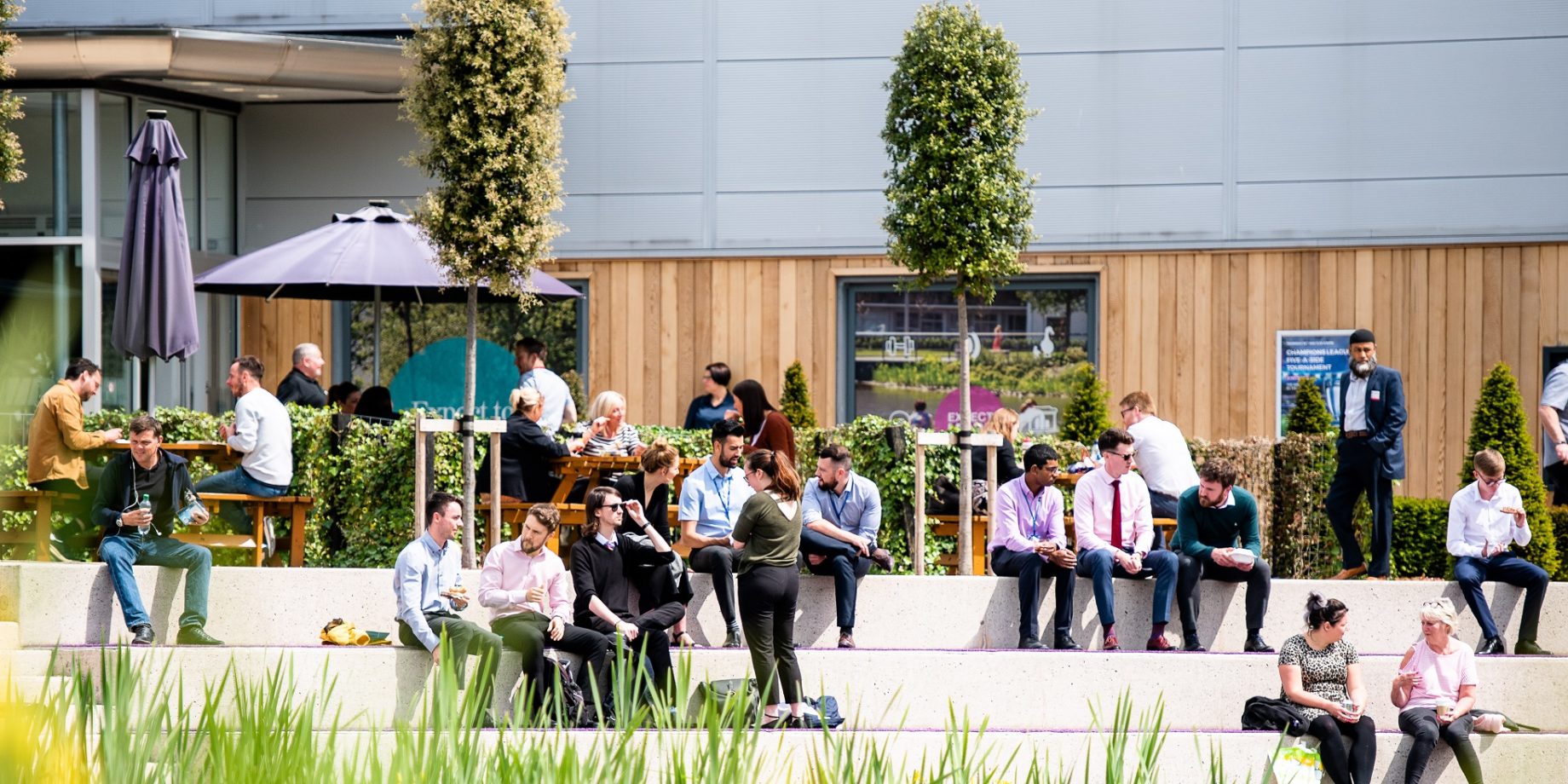Here Birchwood Park’s Martin O’Rourke, Commercial Director with over 30 years of experience in the property and business sectors, looks at the impact of the COVID-19 pandemic on business in the region; from the struggles faced by many, to the impressive resilience shown to overcome such unexpected obstacles.

Over the past 18 months, all businesses – regardless of size or sector – have found the need to adapt; whether they’ve been busier than ever or seen profits plummet, there’s never been a bigger need to get creative across the board in the interest of keeping momentum moving forward. From the environmental, to the social and managerial aspects of business – most areas played a key role in this change.
A whole spectrum of environmental factors needs to be considered
The working environment provided to employees is fast becoming the most important consideration for both workers and bosses alike – a change fast-tracked by the pandemic. ‘Working environment’ now also refers to much more than simply what’s on or around your desk; wellbeing, building performance, transport, bio-diversity – the whole spectrum needs to be considered.
When speaking with occupiers at Birchwood Park, and assessing the wider market, it’s clear that many businesses have come to realise the importance of an individual and their workplace satisfaction and wellbeing. Employees are time and time again cited as the ones who’ve kept businesses going, and now bosses are looking to recognise this and look after their staff. Our previous campaign looking at the office of the future explored the attitudinal and cultural changes required to support this, and these are each key in looking to bounce back post-covid. Businesses need to support staff, for them to feel looked after following a difficult past year (and more, and to re-energise their workforce.
The past 18 months have also shone a spotlight on the climate crisis we’re in and the steps business can take to lessen their own carbon footprints. We’ve seen a real trend here on the Park, in that both current and potential occupiers are placing increasing importance in this area – whether that’s as a result of pressure from stakeholders, Government incentives, how much employees are now valuing their employer’s green credentials, right through to customer opinion too. Businesses are now looking at everything from how their employees commute and transitioning to green vehicle options, to building efficiency and community work. And whilst many businesses may wrestle with decisions in this field, now is not the time for complacency and instead the time to invest; in looking to ‘bounce back’, businesses also need to look to the future and the impact of their business.
Technology is the final environmental factor we’ve seen rise to the top of the business agenda – just in their investment in the latest tech, but how they interpret the information readily available to them as a result of such technology. It’s all about measurability; ‘Smart buildings’ are currently the flavour of the month in commercial property, but beyond this it boils down to the simple fact that tech needs to offer something above and beyond what can already be done, which needs to be measurable – in improving the working environment by installing the latest new technology, is this going to improve factors that matter to you as a business? It could be something as simple as improving employee satisfaction, or go right through to setting yourself apart from your competitors to ultimately help generate new business. If the answer to any of these questions is yes, then invest!
Building resilience is the key to success
Resilience-building can feel like a buzzword, especially in the current business climate, but it’s vital that businesses set themselves up to be as resilient as possible. There are a number of factors that come in to play;
Your staff: The single most important asset to your business needs to be looked after, so invest in your staff. Whether that’s by putting the time in to help them transition back to working life post-furlough through supportive HR policies, upskilling to help them meet new business requirements, or training to help re-energise your workforce. Make sure you listen to your team, now, more than ever, is the time to make them feel valued and heard on what they need from work and how they want to contribute to the business – but, whatever you do, make sure you follow through on anything actionable. Do this, and presenteeism will drop, retention rates will increase and recruitment costs will fall.
Being flexible, but goal oriented: Flexibility is never going to go away, for many businesses we will never return to set hours in a set building at a set desk when it comes to the working week, so if you’re still fighting this new way of working, there’s a strong chance you’re going to set yourself up for failure – whether that’s in missing out on new opportunities or losing staff along the way. That said, don’t lose focus on your goals – a lot of businesses over the past year rushed to set up flexi-working and remote working but without any real thought about the long-term impact, so make sure you don’t fall into this trap.
Having a back plan (or plans): It might sound simple, but a solid business strategy considers every possible outcome and eventuality. Ensuring you have plans which consider each of these outcomes and how your business can and will respond could mean the difference between thriving and folding in this climate. And bear in mind that there is no one size fits all approach; each company has different needs, a different culture, and will be at different stages of the business cycle. Whatever approach is adopted it has to be right for your company, but you have to be prepared to change if it is not right.
By considering these top three factors, you’re sure to set your business back on the right path post-COVID.


